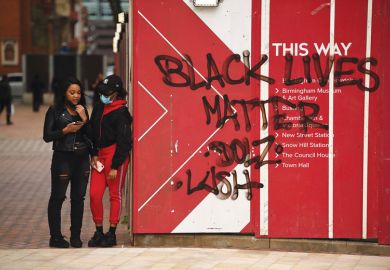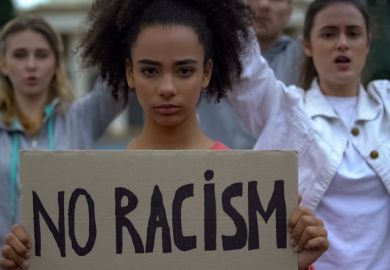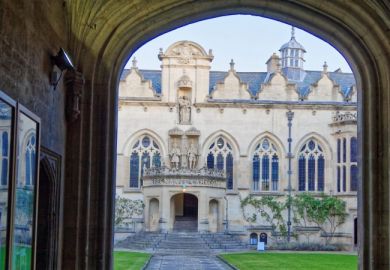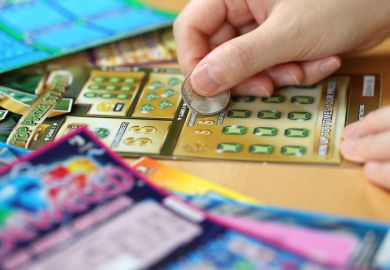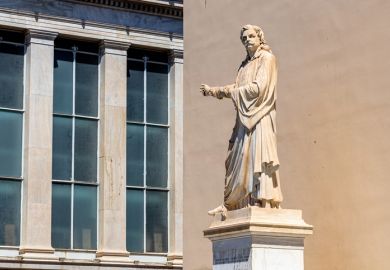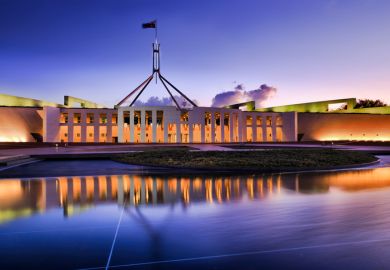Calls to “decolonise the university curriculum” have become louder than ever in the wake of the shocking death of George Floyd under the knee of a Minneapolis police officer. But what exactly does this entail?
According to one of the better definitions, provided by Keele University’s Manifesto for Decolonising the Curriculum, it means “creating spaces and resources for a dialogue among all members of the university on how to imagine and envision all cultures and knowledge systems in the curriculum, and with respect to what is being taught and how it frames the world.”
On the surface, that seems worthy and uncontroversial. But there are several problems with the campaign. First, its end point is unclear – or, at the very least, problematic. Who, for example, should decide which curricula are most in need of “decolonisation”? What criteria should be applied? And, if change is required, what exactly should be done about it?
To acknowledge these challenges is not to deny that racism and the legacy of empire linger in the curricula of some Western universities. But the true extent of their imprint is unknown. It will also vary from discipline to discipline and from institution to institution.
Technical subjects are probably not culpable at all, although they can, of course, be applied in racist and other unconscionable ways. Think, for example, of the eugenics movement and the abuse of medical science by Nazi doctors during the Holocaust.
The arts, humanities and social sciences – which differ significantly between modules, courses and universities – are much more likely to come under scrutiny. Slavery and empire could not, for example, be ignored in any credible course in British history.
However, this does not mean that these subjects should be taught, studied and researched in exactly the same way everywhere. Mandating the inclusion or exclusion of certain texts or approaches would also be a gross breach of scholarly freedom and the values of open academic debate.
But this is what might happen. Some of the decolonisation campaigners have other highly prescriptive, yet problematic, demands. How, for example, should the crime of “epistemicide”, the killing of non-Western world views, be rectified? Presumably, teaching traditional African, Chinese and Indian medicine on a par with the Western model is not envisaged. But who knows?
The proposed vetting of reading lists to ensure approved quotas from scholars marginalised by colonialism is also inconsistent with the most fundamental criterion for inclusion: the value of any given contribution rather than the identity of the contributor.
These difficulties are compounded by another contemporary trend in Western universities: the demand for “safe spaces”. Those who operate under this banner seek to protect minority beliefs from challenge in the classroom, no matter how appropriate or respectful this may be. The current wave of attempts to silence legitimate, but unwelcome, views in pursuit of “progressive” agendas – popularly known as “cancel culture” – also militates against open debate. Academics and writers who express controversial opinions are increasingly being targeted in various ways – including by online petitions demanding censure or dismissal – designed to intimidate them into silence.
Unless properly managed, the combined effect of these three trends may be to open up debate only to perspectives with which campaigners agree, while simultaneously closing down those with which they don’t.
However, the most serious flaw with the decolonisation campaign is that it does not readily embrace groups disadvantaged and marginalised by processes other than colonisation. If we need a campaign to decolonise university curricula, do we not also need separate ones to, for example, “de-masculinise”, “de-heterosexualise” and “proletarianise” them?
In the current climate, it is understandable that universities feel compelled to support the decolonisation campaign, not least to avoid the naming and shaming that has already begun.
But rather than simply endorsing complaints from the most vocal students and staff, there needs to be a much more thorough, evidence-based attempt to determine the nature and extent of curricular exclusions of all kinds.
Diversity, tolerance, inclusivity and respect for people and ideas would be better served, not by “decolonising the curriculum”, but by much more widely focused scrutiny of specific curricula at specific institutions. This will involve uncomfortable discussions, not only about racism and the legacies of empire, but also about injustices from other sources.
Above all, however, the right to free and open debate must be respected and protected. Frank and open reflection concerning different kinds of both manifest and subtle exclusions offers the best chance of addressing them effectively.
Steven Greer is professor of human rights at the University of Bristol Law School.
Register to continue
Why register?
- Registration is free and only takes a moment
- Once registered, you can read 3 articles a month
- Sign up for our newsletter
Subscribe
Or subscribe for unlimited access to:
- Unlimited access to news, views, insights & reviews
- Digital editions
- Digital access to THE’s university and college rankings analysis
Already registered or a current subscriber?

